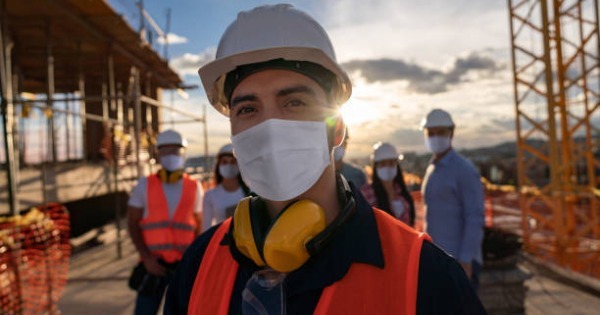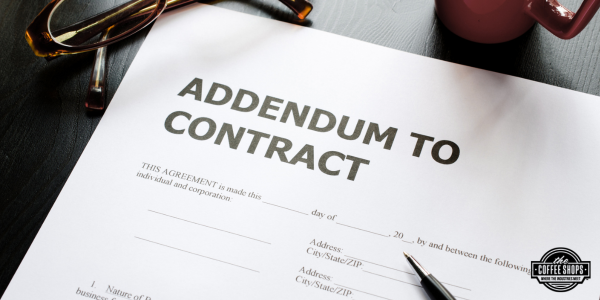Top 10 Tips for Dealing with COVID-19 in the Carolinas for the Construction Industry

By Cotney Construction Law, LLP.
Dealing with COVID-19 in the Carolinas for the Construction Industry
-
Follow CDC Guidelines for preventing the spread of COVID-19
-
Wash hands often
-
Avoid close contact
-
Stay home if you are sick
-
Clean and disinfect
-
-
You are permitted to conduct temperature checks and ask employees COVID-19 related questions to help ensure that sick employees are not entering the jobsite and exposing others to infection. It is important to understand that although temperature checks are permitted, this virus has been shown to display itself differently in different individuals and not everyone with the virus will display a temperature. Taking temperatures of employees as they enter the jobsite can be helpful but is not guaranteed to prevent the spread of the virus. Some questions that can be asked of employees are:
-
Have you been in contact with someone who has tested positive/is being tested for COVID-19?
-
Have you travelled out of the state within the past two weeks? Where did you go?
-
Have you or someone you have been in close contact with been directed to self-quarantine?
-
Have you: had trouble breathing; had a fever; had chills; had fatigue; etc. (can only ask about COVID-19 related symptoms.)
-
-
You can require subcontractors to follow your own employee’s rules.
-
Be sure to make the subcontractor supervisor responsible for enforcement.
-
-
You are an Essential Business.
-
Many counties are issuing “stay at home” orders and entire states may soon follow.
-
So far, in all NC and SC counties that have issued these types of orders, the construction industry including construction suppliers are considered “essential businesses” and are permitted to continue their business functions.
-
Although permitted to continue working it is important to try to keep CDC social distancing mandates in place as much as possible in order to keep from infecting employees and being shut down because you have no healthy employees.
-
-
-
Your employees are not entitled to workers’ compensation if they contract COVID-19
-
North Carolina may allow certain healthcare employees to qualify for workers’ compensation for COVID19.
-
South Carolina does not allow anyone to qualify as they have specific laws in place addressing the issue.
-
Federal employees who contract the virus as a result of their employment can qualify for workers’ compensation.
-
-
Employees can file claims for unemployment as a result of COVID-19.
-
In NC Governor Cooper issued an executive order permitting individuals who are separated from employment; have had their work hours reduced; or are prevented from working due to a medical condition or under direct quarantine orders from COVID-19 can file a claim for unemployment.
-
The one-week waiting period is waived;
-
The able to work and available to work requirements are waived;
-
The work search requirements are waived;
-
The actively seeking work requirements are waived;
-
The “lack of work” requirement is waived
-
-
In SC Governor McMasters issued a similar executive order allowing for individuals and business affected by COVID-19 to submit unemployment claims. SC also implemented similar waivers of waiting requirements and other work requirements.
-
Additionally, SC has implemented an “employer filed claims” option where employers can file the unemployment claims on behalf of COVID-19 affected employees.
-
-
Both NC and SC have waived any charges for contributory employers when unemployment benefits are paid as a result of COVID-19.
-
-
Employees can qualify for FMLA as a result of COVID-19.
-
If you are an employer of greater than 50 but fewer than 500 employees (if not then there are other factors to consider.)
-
The employee only has to have been employed for 30 days.
-
The employee:
-
Requests leave due to a requirement or recommendation to quarantine due to exposure to or symptoms of COVID-19;
-
Requests leave to care for a family member who has been exposed or is displaying symptoms of COVID-19;
-
To care for a child of an employee if the child’s school or place of care has been closed as a result of COVID-19.
-
-
The first 14 days are unpaid.
-
Day 15+ through the FMLA period, the employee is to be paid at no less than 2/3 their regular rate of pay for the number of hours the employee would have been normally scheduled.
-
-
Employees can be paid sick leave for the first 14 days of COVID-19 related sick leave.
-
If you are an employer of greater than 50 but fewer than 500 employees (if not then there are other factors to consider.)
-
The employee only has to have been employed for 30 days.
-
The employee:
-
Requests leave due to a requirement or recommendation to quarantine due to exposure to or symptoms of COVID-19;
-
Requests leave to care for a family member who has been exposed or is displaying symptoms of COVID-19;
-
To care for a child of an employee if the child’s school or place of care has been closed as a result of COVID-19.
-
-
The employee is paid their full rate of pay unless they are caring for a family member as a result of COVID-19 at which they are entitled to 2/3 their regular rate of pay.
-
-
Do not fire/furlough/layoff etc. employees in a manner that creates a disparate impact.
-
COVID-19 has a greater risk to the older population. You cannot and should not get rid of all of your older employees as a result; that would be a disparate impact.
-
-
This will pass!
-
COVID-19 will cause a lot of suffering across the globe but it WILL pass. Be sure to remain vigilant of new laws, legislation and guidelines and not act out of fear or panic but to make reasonable and logical decisions about the immediate issues you are facing. Reach out to your attorneys and make sure that the decisions you make now are in the best interest of you and your business and will not result in issues down the road.
-
With assistance interpreting the ever-evolving laws, legislation and guidelines please contact Cotney Construction Law. Ashlee Poplin in Charlotte, North Carolina and cover both North and South Carolina. She can be reached at (704) 275-5712 or apoplin@cotneycl.com.
Author’s note: The information contained in this article is for general educational purposes only. This information does not constitute legal advice, is not intended to constitute legal advice, nor should it be relied upon as legal advice for your specific factual pattern or situation.




















Comments
Leave a Reply
Have an account? Login to leave a comment!
Sign In